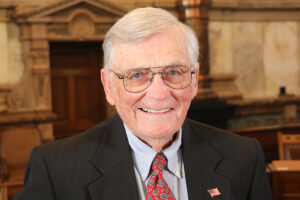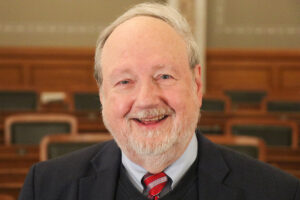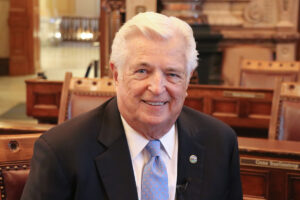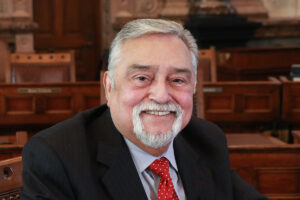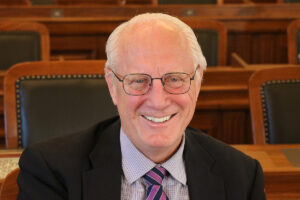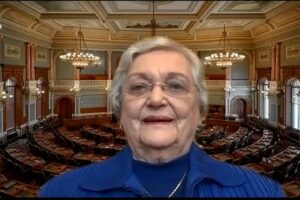Interview of Patrick Brazil, September 11, 2023
Interviewed by Richard Ross
This interview focused on the role of the Chief Judge of the Court of Appeals and the relationship of the intermediate appellate court to the state supreme court. In 1977 when the court composition was revised, it served in panels of three judges, traveling to hear cases statewide. In 1996 the number of appeals had grown to over 2,000. The interview discussed the appointment of the Chief Judge, caseloads, the philosophy of the judges and how they managed the work. The passage of the sentencing guidelines created what they described as a "Blitz Docket". Show More There is also discussion of the utilization of a Judicial Nominating Commission and how that process worked. The COVID pandemic also forced changes upon this particular court.-- primarily stopping its travel and using Zoom and video calls instead. Show Less


